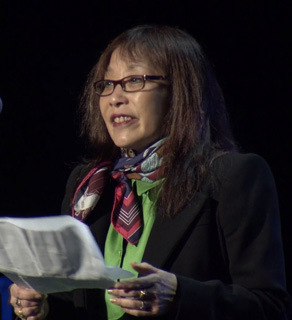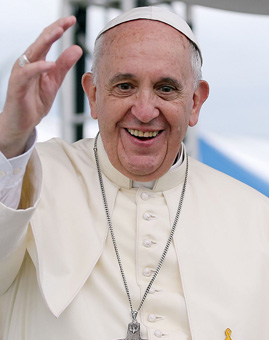Last week I read a little book by Michiko Kakutani called The Death of Truth (2018) that crystallized some thoughts that have been buzzing in my brain for some time. For Kakutani, the former chief book critic of the New York Times and a winner of the Pulitzer Prize, the death of truth and the rise of falsehood help to explain our badly divided democracy.
What really grabbed my attention is a theme that Kakutani returns to again and again: that today we are losing what she calls on her very first page "a sense of shared reality." She fears that we are "increasingly segregated in terms of politics, culture, geography, and lifestyle." She quotes Obama, for example, who lamented how Americans are "operating in completely different information systems."
That is, we have increasingly lost a sense of our common good. A shared commitment to life together. Belief in common concerns that bind us together. Civic causes about which we all can and should agree. The de facto "motto" of the United States that "out of many we create one" (e pluribus unum).
This theme is likewise the concern of Robert Reich's The Common Good (2018). Reich served in three presidential administrations, has written fifteen books, and today is the Chancellor's Professor of Public Policy at the University of California, Berkeley.
 |
|
Michiko Kakutani.
|
In our deeply divisive times, Reich calls us back to "we the people" and our constitutional call to "promote the general welfare." He laments the loss of our civic connectedness. He challenges us to commit ourselves to public affairs and not just private interests, to the common good and not just self-aggrandizement, to all of society's stakeholders (workers, schools, towns, the environment, consumers, etc.) and not just to economic shareholders.
Despite our many differences, we all have shared ideals, mutual commitments, and reciprocal obligations to society as a whole. And so we voluntarily enter a social contract that binds us together. We agree to respect the rule of law, to tell the truth, and to pay our taxes. We commit ourselves to the public education of all people, to political equality, to economic opportunity, and to protect our democratic institutions.
I especially appreciated Mark Lilla's bombshell of a book, The Once and Future Liberal; After Identity Politics (2017). Lilla, Professor of the Humanities at Columbia University and a self-identified "centrist liberal," bemoans the failures of Democrats, and he does so with an incendiary critique of the left's most sacred cow — identity politics.
If you go to the home page of the Democratic Party, and scroll down to the bottom of the page, you'll find a link for "People." Click on that link and you will find a list of seventeen (!) distinct groups — women, LGBT, Hispanics, and so on. Instead of casting a vision for what unites our entire country, instead of gathering us together in what we all share in common, the left has become obsessed with divisive, narrow, exclusionary, and hyper-individualist identities. Instead of building consensus and pulling us all together, says Lilla, identity politics does the opposite, it fractures and fragments us into our self-interested groups. In his view, this strategy guarantees failure, not just for Democrats but for the nation as a whole.
Over and over Lilla repeats the word "common" — our common good, our common future, our common destiny, our common goals, what we all share and can all affirm not as radically different interest groups but as common citizens. The focus on identity groups is what Lilla calls a "disuniting rhetoric of difference." It exerts a centrifugal force that splinters the common good. For about two generations now, says Lilla, the most important lesson for us to learn is the failure of both the left and the right to define a common vision for all citizens.
In his book A Public Faith; How Followers of Christ Should Serve the Common Good (2011), Miroslav Volf, director of the Yale Center for Faith and Culture, explores how believers are called to be in the world without themselves becoming worldly. There's no one single way to be faithfully present in the world. The earliest believers "were not major social players at all," but a fringe sect on the periphery of the powers, so there's no reason to bemoan any sense of diminished influence.
There are elements of culture that Christians will accept, other elements we should reject, and still others we might adopt and transform. Volf objects to the criticism that Christian faith in a pluralistic world is inherently violent. Rather, he appeals to the "golden rule." Believers should treat others in the world like they want to be treated. This is a "vision of human flourishing" for all people, not just a favored few, and "the most important contribution of the Christian faith to the common good."
Finally, there's the provocative book by Douglas Boin, Coming Out Christian; How the Followers of Jesus Made a Place in Caesar's Empire (2015). Boin rejects the famous thesis of Edward Gibbon — repeated by no less than the Cambridge classicist Mary Beard in her best-selling book SPQR; A History of Ancient Rome (2015) — that the success of Christianity was based upon its "intolerant zeal" of Roman ways, and that the new faith was utterly incompatible with and "obstinately different" from the old ways of the ancient empire.
 |
|
Pope Francis.
|
Boin, a classicist, historian, and archaeologist at St. Louis University, rejects this black-and-white, binary way of thinking. He offers a more nuanced interpretation. In his view, there were many, different ways to be both Roman and Christian. He argues that the early believers lived hyphenated lives and "juggled their identities in highly creative ways." They lived in a middle ground characterized by many shades of gray.
At least some of the believers in Rome served in the military, went to the games, enjoyed the festivals, and attended the theaters, just like their neighbors. For them, Rome wasn't John's whore of Babylon (Revelation 17), but a fascinating place to live. In short, they did their best to fit in with "shared civic values," which is just what we read in the epistles — wives were to obey their husbands, slaves their masters, and all believers were to "honor the emperor."
Boin discerns a pattern not of hostility and withdrawal, not some zero sum game, but one of engagement and dialogue. Christian success was not "dependent on someone else's conversion. It was dependent on conversation." But by the late fourth century, this civic engagement in the common good by Christians had eroded into violent cultural clashes — the burning of a synagogue, the destruction of a pagan temple, and government legislation that punished non-believers. We've been living with the sad consequences ever since.
Christians in particular ought to commit themselves to the common good of all — not just to their own nation or church but to the entire world. We confess a creator God who is, as Paul says to the Ephesians, "the father of the whole human family." We follow Jesus, whom Luke calls "the Son of Adam," that is, the representative of all humanity. We believe that God's Spirit is like a tender Mother who lovingly hovers, broods, or "flutters" over the entire cosmos.
In his encyclical called Laudato Si': On Care for Our Common Home (2015), Pope Francis laments how we have succumbed to the "modern myth of unlimited material progress," to the alluring power of the "technocratic paradigm," the numbing of conscience, and an economic model that maximizes profits without any greater end in view. But we now know that technological progress and economic growth do not guarantee human welfare.
What we need most, urges Pope Francis, is to understand that "humanity is one people living in a common home… It cannot be emphasized enough how everything is interconnected." We can no longer make choices or policies that defend the interests of only a few countries, or even the few within a single country. "We need to strengthen the conviction," he says, "that we are one single human family." The earth is our "collective good." Indeed, "this sense of fraternity excludes nothing and no one."
Dan Clendenin: dan@journeywithjesus.net
Image credits: (1) Wikipedia.org and (2) Wikipedia.org.



